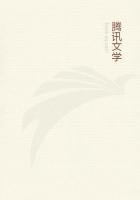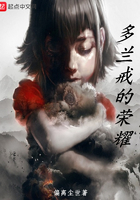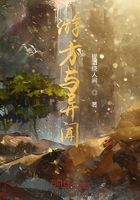When Turnus saw the Latins leave the field, Their armies broken, and their courage quell'd, Himself become the mark of public spite, His honor question'd for the promis'd fight;The more he was with vulgar hate oppress'd, The more his fury boil'd within his breast:
He rous'd his vigor for the last debate, And rais'd his haughty soul to meet his fate.
As, when the swains the Libyan lion chase, He makes a sour retreat, nor mends his pace;But, if the pointed jav'lin pierce his side, The lordly beast returns with double pride:
He wrenches out the steel, he roars for pain;His sides he lashes, and erects his mane:
So Turnus fares; his eyeballs flash with fire, Thro' his wide nostrils clouds of smoke expire.
Trembling with rage, around the court he ran, At length approach'd the king, and thus began:
"No more excuses or delays: I stand In arms prepar'd to combat, hand to hand, This base deserter of his native land.
The Trojan, by his word, is bound to take The same conditions which himself did make.
Renew the truce; the solemn rites prepare, And to my single virtue trust the war.
The Latians unconcern'd shall see the fight;This arm unaided shall assert your right:
Then, if my prostrate body press the plain, To him the crown and beauteous bride remain."To whom the king sedately thus replied:
"Brave youth, the more your valor has been tried, The more becomes it us, with due respect, To weigh the chance of war, which you neglect.
You want not wealth, or a successive throne, Or cities which your arms have made your own:
My towns and treasures are at your command, And stor'd with blooming beauties is my land;Laurentum more than one Lavinia sees, Unmarried, fair, of noble families.
Now let me speak, and you with patience hear, Things which perhaps may grate a lover's ear, But sound advice, proceeding from a heart Sincerely yours, and free from fraudful art.
The gods, by signs, have manifestly shown, No prince Italian born should heir my throne:
Oft have our augurs, in prediction skill'd, And oft our priests, foreign son reveal'd.
Yet, won by worth that cannot be withstood, Brib'd by my kindness to my kindred blood, Urg'd by my wife, who would not be denied, I promis'd my Lavinia for your bride:
Her from her plighted lord by force I took;All ties of treaties, and of honor, broke:
On your account I wag'd an impious war-
With what success, 't is needless to declare;I and my subjects feel, and you have had your share.
Twice vanquish'd while in bloody fields we strive, Scarce in our walls we keep our hopes alive:
The rolling flood runs warm with human gore;The bones of Latians blanch the neighb'ring shore.
Why put I not an end to this debate, Still unresolv'd, and still a slave to fate?
If Turnus' death a lasting peace can give, Why should I not procure it whilst you live?
Should I to doubtful arms your youth betray, What would my kinsmen the Rutulians say?
And, should you fall in fight, (which Heav'n defend!)How curse the cause which hasten'd to his end The daughter's lover and the father's friend?
Weigh in your mind the various chance of war;Pity your parent's age, and ease his care."Such balmy words he pour'd, but all in vain:
The proffer'd med'cine but provok'd the pain.
The wrathful youth, disdaining the relief, With intermitting sobs thus vents his grief:
"The care, O best of fathers, which you take For my concerns, at my desire forsake.
Permit me not to languish out my days, But make the best exchange of life for praise.
This arm, this lance, can well dispute the prize;And the blood follows, where the weapon flies.
His goddess mother is not near, to shroud The flying coward with an empty cloud."But now the queen, who fear'd for Turnus' life, And loath'd the hard conditions of the strife, Held him by force; and, dying in his death, In these sad accents gave her sorrow breath:
"O Turnus, I adjure thee by these tears, And whate'er price Amata's honor bears Within thy breast, since thou art all my hope, My sickly mind's repose, my sinking age's prop;Since on the safety of thy life alone Depends Latinus, and the Latian throne:
Refuse me not this one, this only pray'r, To waive the combat, and pursue the war.
Whatever chance attends this fatal strife, Think it includes, in thine, Amata's life.
I cannot live a slave, or see my throne Usurp'd by strangers or a Trojan son."At this, a flood of tears Lavinia shed;
A crimson blush her beauteous face o'erspread, Varying her cheeks by turns with white and red.
The driving colors, never at a stay, Run here and there, and flush, and fade away.
Delightful change! Thus Indian iv'ry shows, Which with the bord'ring paint of purple glows;Or lilies damask'd by the neighb'ring rose.
The lover gaz'd, and, burning with desire, The more he look'd, the more he fed the fire:
Revenge, and jealous rage, and secret spite, Roll in his breast, and rouse him to the fight.
Then fixing on the queen his ardent eyes, Firm to his first intent, he thus replies:
"O mother, do not by your tears prepare Such boding omens, and prejudge the war.
Resolv'd on fight, I am no longer free To shun my death, if Heav'n my death decree."Then turning to the herald, thus pursues:
"Go, greet the Trojan with ungrateful news;Denounce from me, that, when to-morrow's light Shall gild the heav'ns, he need not urge the fight;The Trojan and Rutulian troops no more Shall dye, with mutual blood, the Latian shore:
Our single swords the quarrel shall decide, And to the victor be the beauteous bride."He said, and striding on, with speedy pace, He sought his coursers of the Thracian race.
At his approach they toss their heads on high, And, proudly neighing, promise victory.
The sires of these Orythia sent from far, To grace Pilumnus, when he went to war.
The drifts of Thracian snows were scarce so white, Nor northern winds in fleetness match'd their flight.















